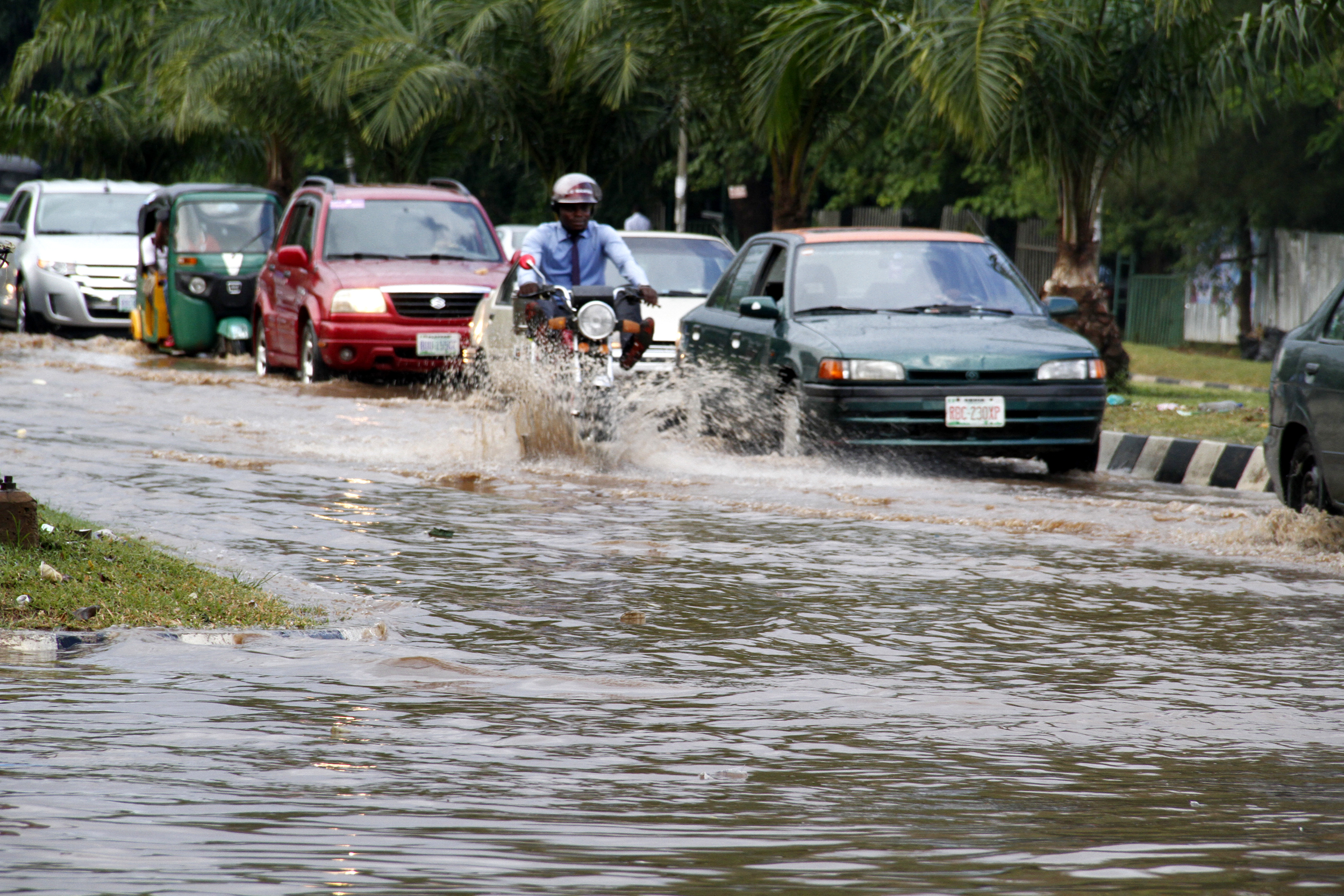The 2016 flood alert

The Nigerian Hydrological Service Agency (NHSA), through its Director General, Moses Beckley, has warned of imminent flooding in most parts of the country and advised residents of flood-prone areas to be vigilant and relocate to safer places to avoid disaster.
Details of the report, which formed part of the public presentation of the 2016 Annual Flood Outlook in Abuja recently, show that about 34 states of the federation have reason to worry. Our pain, however, is that this gloomy prediction could come to pass with grave consequences for the people and the environment, if urgent measures are not put in place in the identified states.
Eventhough the world is now more at risk of natural disasters as a result of the negative impact of climate change and the depletion of the Ozone layer, the response to this risk from countries like Nigeria has been far from adequate. In fact, there is every reason to believe that we either do not understand the environment or do not care about it enough.
This is a real challenge going forward and we hope our governments at all levels will change their attitude. They should engage the environment and the issues around it better. The environment has taken on more significance in the scheme of things globally, thanks to improved knowledge and understanding. Nigeria, with its vast and varied topography, as well as coastlines stretching across 910,768 kilometres, (according to the World Resource Institute), cannot afford to be caught napping every rainy season.
Although the reason for the predicted flooding has been given as the expected rise in sea levels and tidal surges, with the most-prone areas identified as the river basins of Niger, Benue, Sokoto-Rima, Anambra-Imo, Cross River, Komadougu-Yobe, Niger Delta, Ogun-Osun and several other sub-basins of the country, there is the big issue of adequate preparation for the inevitable.
The appointment of Amina Mohammed as Minister of Environment suggests a positive change of attitude on the environment at the highest level of government. But, a look at the budget for the ministry, however, shows that not much has changed. Of the N100 billion the ministry asked for as capital allocation, only a paltry N5 billion was approved in this year’s budget.
Only a few states demonstrate an understanding of environmental issues. These issues have largely continued to suffer embarrassing neglect across the country. In reality, what is required is adequate budgetary provisions for the environment; and the Federal Government must take the lead. When this is done, there will be enough capital provisions to build good road networks with proper drainages across the country. Government should prevent people from building shelters in flood-prone areas. For example, there have been warnings about the imminent submersion of areas around the Lekki Peninsular in Lagos State, but new housing estates continue to emerge there unabated.
This should not be the attitude of a government and people who understand the dangers such dangerous living patterns pose. Indeed, government and its relevant agencies should do the needful to ensure that drainages are provided in all our communities to allow the quick and easy drainage of excess rain water.
Wastes should be adequately and promptly cleared and collected to stop them clogging the drainage channels which are grossly inadequate. The waste-to-wealth programme can come to the nation’s rescue in this respect and efforts need to be intensified towards its realization.
The citizenry, too, need to change their unhelpful ways on environmental matters. Our cities, not to talk of our villages and rural communities, are a shameful litter. We need to do more as a people desirous of reversing our dismal fortunes in terms of avoidable environmental degradation. The recent media pictures of flooding outcomes in some of our urban centres left a sour taste in the mouth.
This is the 21st Century, and the rules for engaging the environment have to change. Information has to be made available to the generality of the people with specifics on flood-prone areas for the purpose of safe living. The sanitation laws should be constantly updated and strictly enforced. Adequate budgetary provisions should be made for the environment ministries at the Federal and state levels, and their support agencies adequately manned and equipped.
Above all, the issues of the environment, especially with regards to flooding, should concern all – government, businesses, relevant non-governmental organisations and the entire populace.
Comments
Post a Comment